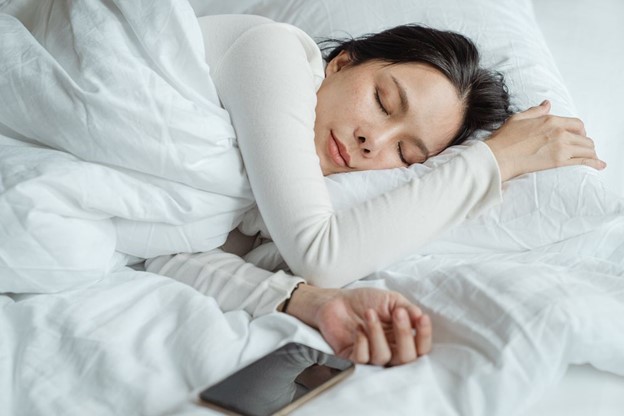Sports require your body and mind to be fresh, and tennis is no different.
As match-day grows closer and closer, it’s normal to feel a little anxious. However, anxiety can negatively affect your sleep and, by extension – your tennis performance. Don’t worry, though, as there are ways to improve the quality of your sleep, ensuring you’re well-rested for your big day. This article will reveal the details of how to get a good night’s sleep before an important tennis match. We’ll talk about the general rules for good sleep, as well as some simple tips and tricks that offer instant improvement. Let’s begin.
Get a Good Mattress
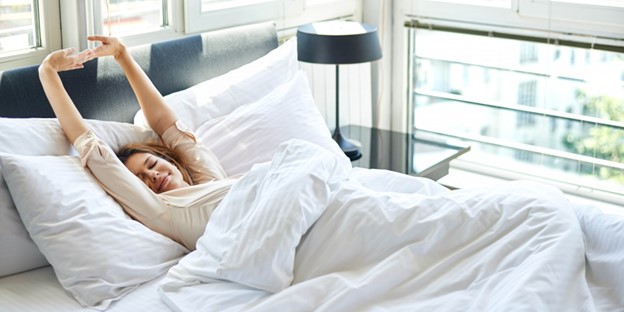
A good mattress is vital for good sleep. However, since everyone is different, finding one means choosing according to your personal needs. Therefore, things like your weight, sleeping position, and underlying medical issues will all affect your choice.
Without going into too much detail, let us say that lighter sleepers will need a thinner mattress, whereas heavier ones should opt for greater thickness. As for sleeping position, side sleepers usually need a firmer, more supportive mattress.
Back pain is one of the most common medical issues related to sleep. However, there is a simple solution, even if you don’t want to buy a new mattress. According to Alex Savy, Certified Sleep Science Coach and Founder of Sleepingocean.com, “A mattress pad is a sure way to make your sleep more comfortable and adjust the feel of your mattress to your needs.” Since back pain can be detrimental to your tennis performance, it’s best to try and avoid it; a mattress pad or topper will help you do just that.
Prepare Your Sleeping Environment


While you might think that your bed is the single most crucial thing dictating sleep quality, this is far from the truth. Controlling your sleeping environment can be just as effective at providing you with much-needed rest.
Making a sleep-friendly bedroom is very simple. To achieve this, you need to get three things right: light, sound, and temperature. Let’s talk about each of these in more detail.
Light
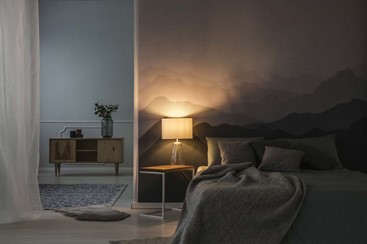

As you might’ve guessed, a dark bedroom is vital to getting good sleep. That’s because the human body is hardwired to react to light: the sunrise wakes us up, and the sunset puts us to sleep. However, the sun is far from the only light source in modern times.
To get the best possible sleep quality, you need to ensure your bedroom is as dark as possible. That means no light sources whatsoever—turn off all lights, including any reading lamps on your nightstand.
These days, there is a rather unusual problem when it comes to light in your bedroom: LEDs. If you have a laptop, TV set, or any other type of technology in your bedroom, they’re bound to emit some light. The worst thing is that they usually emit blue light, which effectively keeps you awake.
For best results, stick some tape over any LEDs to ensure total darkness. Otherwise, they’ll be keeping you up all night, leading to a groggy morning and bad tennis performance.
Sound
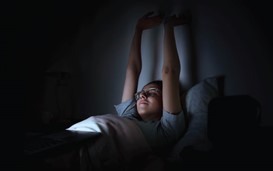

Sound is another easy one. For the best sleep quality, you need total silence. Therefore, make sure to turn off anything that makes any noise whatsoever.
Some people tend to leave the TV on as they fall asleep. That’s a bad idea, as the sound that it produces will prevent you from achieving a state of deep sleep, leaving you tired in the morning. Apart from that, a TV will also emit blue light, making the matter even worse.
If you’re a very light sleeper, you might want to disconnect any electronics you have in your bedroom. That means pulling the plug on your TV, laptop, phone chargers, and similar appliances. These devices can produce annoying electrical switching noises even when turned off.
If you’d like to ensure completely noiseless sleep, you can try earplugs as a final solution. Earplugs, after all, will eliminate all noise. However, be careful: you might not hear your alarm go off with earplugs in. Instead, you’ll have to rely on sunlight to wake up. Otherwise, you might miss your important tennis match.
Temperature
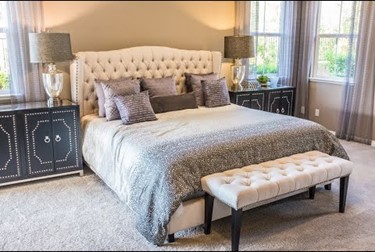

The ideal temperature for sleep is somewhere between 60- and 67-degrees Fahrenheit. Anything outside of this range will start to affect your REM sleep, leaving you tired.
You probably know how a hot bedroom feels: you’re unable to fall asleep, and even if you somehow manage it, you’ll be twisting and turning all night long. Therefore, if you must choose between a slightly too hot or too cold bedroom, we’d recommend opting for a colder one. If you’re feeling chilly, you can get an extra blanket. On the other hand, if you’re sweating, there’s not much you can do.


